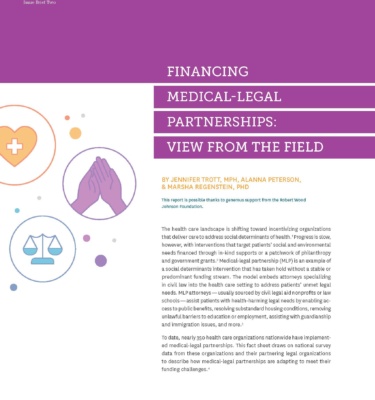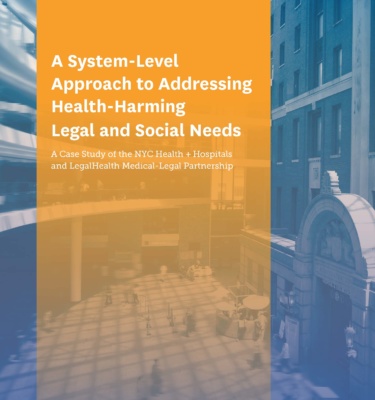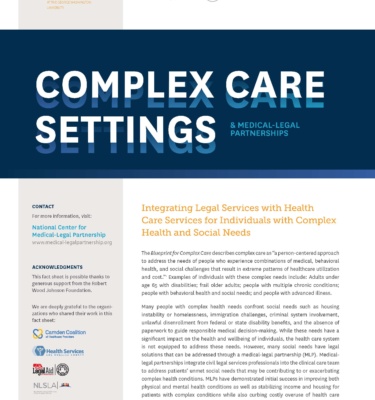Monday, June 10, 2019
In early 2019, Manatt Health surveyed and then convened a group interview of 17 MLPs to identify common themes and trends across programs around strategies for sustaining and financing MLP programs. Leveraging the field's insights and Manatt Health’s expertise in financing social determinants of health, a recent webinar walked through current and potential financing opportunities for MLP activities, including several case studies illuminating innovative Medicaid funding opportunities. The full recording of that webinar along with the webinar slides are available for download....Read More
Tuesday, April 16, 2019
This fact sheet draws on national survey data from these organizations and their partnering legal organizations to describe programs' average budgets as well as a variety of health, legal, and philanthropic funding streams that currently fund MLPs. It also discusses how MLPs are adapting to meet their funding challenges and highlights examples of programs implementing innovative Medicaid financing models to pay for MLP services....Read More
Friday, April 5, 2019
This case study delves into the inner-workings of the largest medical-legal partnership in the country between NYC Health + Hospitals and the LegalHealth division of the New York Legal Assistance Group. It illustrates both how the use of patient-facing legal services fits into the health system's mission, and how LegalHealth structures a variety of legal clinics across the NYC Health + Hospitals system to meet the legal needs of many different types of marginalized patients. Lessons learned from this partnership serve as an example to other public or non-profit hospital systems that may be interested in incorporating legal services into a holistic strategy to address the health-harming social and other non-medical factors that affect their patients. ...Read More
Monday, February 11, 2019
This fact sheet describes five complex care settings that have integrated medical-legal partnership services into care delivery. It also features data on the ways these partnerships have demonstrated initial success in improving both physical and mental health conditions as well as stabilizing income and housing for patients with complex conditions while also curbing costly overuse of health care services by addressing the root causes of patients’ problems....Read More



